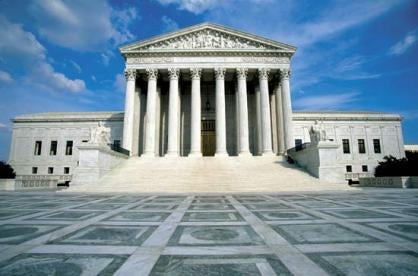Even after a record number of wage and hour cases over the last decade, new issues keep arising in this area. One of the most interesting of those questions in recent years hit the United States Supreme Court last year, when the Court tackled the question of whether or not time employees spend in anti-theft security screening at the end of their shift is compensable under the Fair Labor Standards Act (FLSA).
In a unanimous decision issued on December 9, 2014, the Court ruled that time employees spend waiting to undergo – and actually undergoing – security screenings is not compensable under the FLSA. In the case, several hourly warehouse workers whose jobs were to retrieve products from warehouse shelves and package them for shipment to Amazon.com customers filed a class action lawsuit against their employer, Integrity Staffing Solutions, under the FLSA. The employees claimed that they spent approximately twenty-five minutes each day waiting to undergo and undergoing security screenings at the end of their shifts and asserted they were entitled to compensation for this time under the FLSA. The security screening was mandatory of all warehouse employees and involved passing through a metal detector after removing wallets, keys, and belts.
The district court that originally heard the case in California dismissed the plaintiffs’ complaint for failure to state a claim, holding that the time spent waiting for and undergoing the security screenings was not compensable because the screenings occurred after the regular work shift and were not an integral and indispensable part of the principal activities that the workers were employed to perform – i.e., retrieving and packaging products for shipment. However, the United States Court of Appeals for the Ninth Circuit reversed, ruling that since the security screenings were required by the employer, the screenings were necessary to the employees’ primary warehouse duties and done for the employer’s benefit.
On appeal, the U.S. Supreme Court reversed the Ninth Circuit and held that the time the warehouse employees spent waiting to undergo and undergoing the security screening was not compensable under the FLSA. According to the Court, the case turned on the Portal to Portal Act – an amendment to the FLSA enacted approximately 65 years ago. That Act does not require employers to compensate employees for activities which are preliminary or postliminary to the performance of the principal activities that an employee is employed to perform. Instead, an employer is required to compensate an employee for an activity “if it is an intrinsic element of the employee’s principal activities and one with which the employee cannot dispense if he is to perform his principal activities.”
Applied here, the Supreme Court ruled that the security screening was a non-compensable postliminary activity. First, according to the Court, the screenings were not the principal activities the employees were employed to perform. Instead, the workers were employed to retrieve products from warehouse shelves and package them for shipment. Likewise, the Court felt that the screenings were not integral and indispensable to the employees’ principal activities. According to the Supreme Court, it didn’t matter whether the security screenings were required by the employer. The Court reasoned that if the test for compensability could be satisfied merely by the fact that an employer required an activity, it would sweep into “principal activities” the very activities that the Portal-to-Portal Act was designed to exclude.
At the time, the Supreme Court issued its decision, numerous other class actions were pending around the country alleging similar claims, and there’s little doubt the Court’s ruling took the wind out of many plaintiffs’ sails. As is always the case, however, decisions involving the FLSA are fact-intensive, and employers facing this same issue should proceed cautiously and consult counsel before deciding the compensability of required preliminary and postliminary activities.



 i
i

